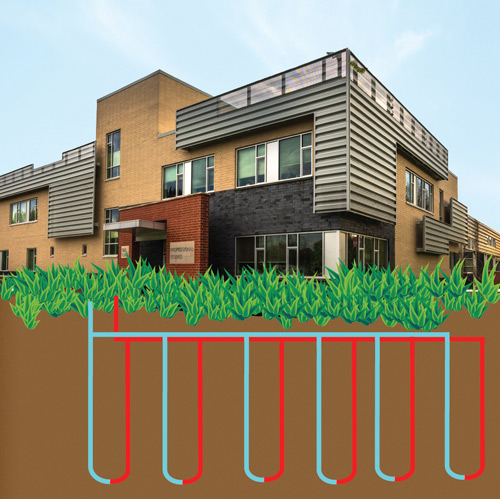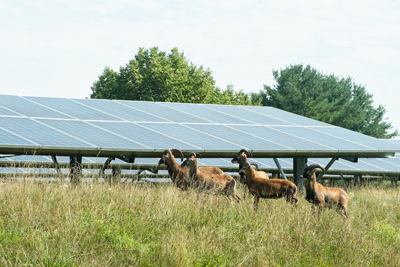Sustainability Office Staff
We have a three-employee team who works to improve sustainability on campus. If you ever have any questions
about sustainability or want to become more involved please reach out to [email protected]
Beth Klein - Campus Sustainability Coordinator
Responsible for general sustainability coordination with a focus on sustainability curriculum, research and outreach.
Matt Brubaker- Campus Energy Manager
Responsible for energy use, procurement, energy reduction initiatives, and providing guidance to campus buildings operations and management of the buildings.
Megan Swing- Energy & Sustainability Engagement Coordinator
Responsible for managing campus sustainability communications, promoting on campus sustainability engagement, programs and campus-wide events.
Recycling
Know the place for your waste
All recycling should be clean, dry and with no lid/caps/tops. Take out any food, rinse and let dry.
Transportation
How you get around campus
While walking around campus
You may notice several overgrown sections identified as “No Mow” Zones. The College intentionally decided not to cut grass in these locations during the summer, reducing fuel consumption and allowing wildflowers and animals to flourish.
Energy
Flipping on a light switch, plugging something into an outlet, building heating and cooling
Heat Pumps
The Professional Studies Building is heated and cooled by a Geothermal Water Source Heat Pump System. A series of 40 wells, 400 feet underground on the building’s west side, are used for pumping heat to or from the ground. In the winter, it uses the earth as a heat source, while in the summer, it becomes a heat sink. The design takes advantage of the relatively stable temperature of the Earth’s crust throughout the year to boost efficiency and reduce electric and natural gas consumption.

Solar
SUNY Cortland became the first SUNY campus to operate all of its facilities using 100% renewable electric energy. More than 3,600 solar panels were installed on campus in 2014 through an innovative program that’s become a blueprint for other public colleges. They produce enough electricity to power 130 homes.
Each summer a flock of sheep control the vegetative growth, by grazing, within the solar panel. With all the hard-to-reach spots a solar array creates, regular methods of lawn care become more daunting. This method reduces air pollution, improves soil quality, limits erosions and encourages plant growth of native species through the use of rotational grazing. The results are clean fields and clean energy.
LEED Certification
Leadership in Energy and Environmental Design is a green building certification program with standards set by the U.S. Green Building Council. LEED designed buildings promote a variety of “energy-wise” strategies. Buildings on campus with LEED certification include: Glass Tower, Dragon Hall and the Student Life Center.
Food
Auxiliary Services Corporation, the non-profit entity, that runs the campus dining areas, dramatically reduced the amount of unused and uneaten food generated on campus by implementing a high-tech system of measuring and monitoring food waste. ACS won a bronze award in the Waste Reduction category of the 2024 NACUFS Sustainability Award, presented by the National Association of College and University Food Services (NACUFS).
Get Involved
Employee committees that you could join to learn more and be part of sustainability
Talking with students
SUNY Cortland community holds a month-long celebration of sustainability and environmental awareness every April. Known as Green Days, the busy schedule of events ranges from inspiring lectures to hands-on environmental activities.
SUNY Cortland hires student Green Reps for every residence hall to educate residents about sustainability and implement green programming.
Other ways to act sustainably
- Bring (and use) reusables
- Water bottle fill stations around campus
- Coffee shops can refill reusable mugs (Coffee Mania, The Bookmark Cafe)
- Walk or bike around campus if and when you can - it’s the most sustainable form of transportation. Check the bus schedule to see if you can get around that way, plus then you don’t need to worry about finding parking!
- Reduce consumption / practice more mindful consumption - consider if you really need that item before buying it
- Support local businesses and farmers
- Look for third-party certifications (USDA Organic, Fair Trade, Rainforest Alliance, Forest Stewardship Council, Leaping Bunny)
Buy second hand (some local options are Cortland ReUse and Thrifty Shopper)
